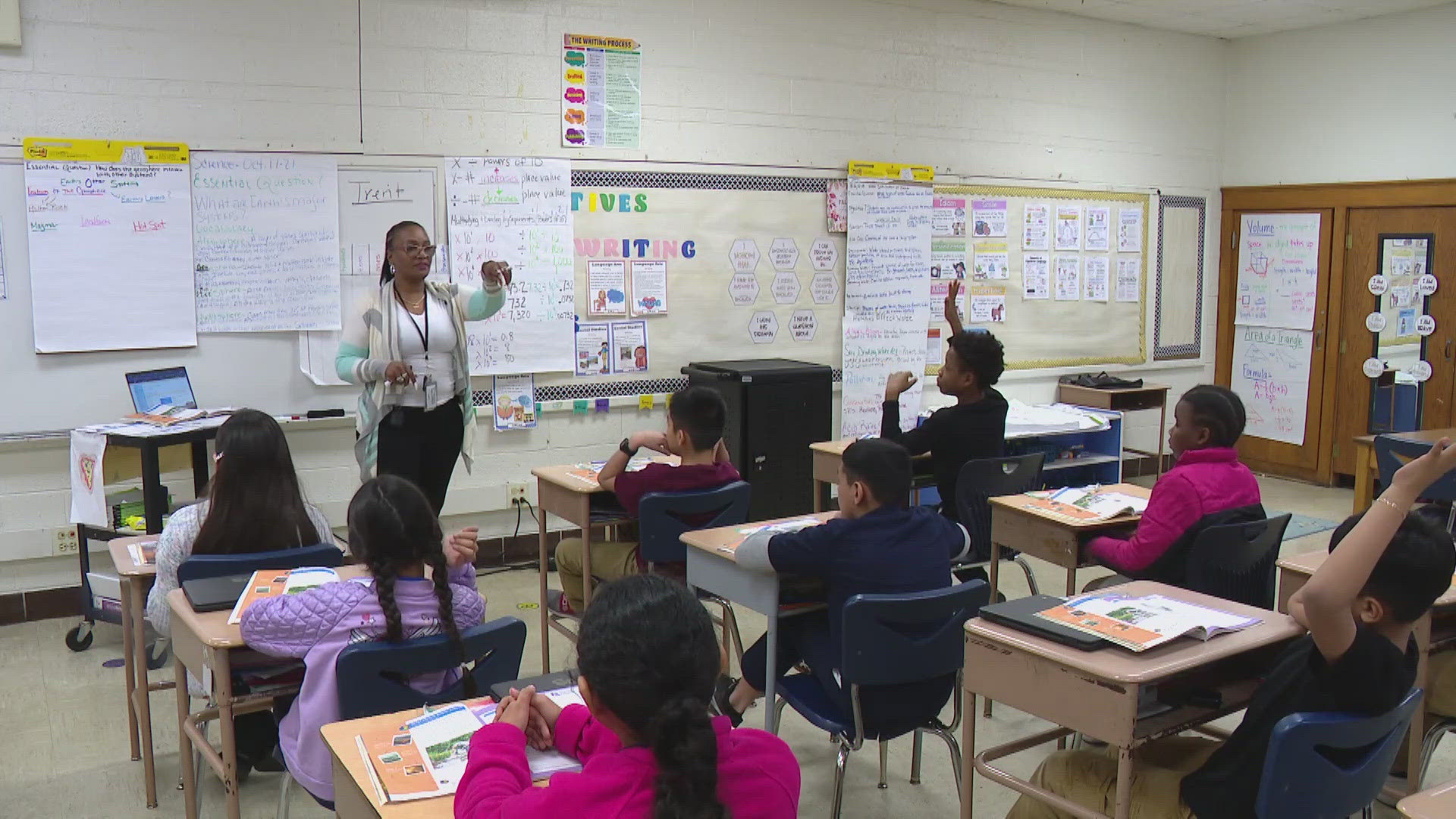INDIANAPOLIS — As the school year is wrapping up in districts across the state, school administrators are looking to fill open teaching positions at a higher rate than ever before.
There are currently a little over 2,000 teaching jobs open in the state.
WTHR education expert, Mrs. Jennifer Brinker, shared why that shortage is happening and what can be done to fix it:
Matthew Fultz: So there is no doubt that teachers are leaving the profession faster than new applicants are joining it, but the question is why?
Mrs. Brinker: There are really three reasons for this shortage: low pay, lack of respect, and working conditions.
Fultz: Talk about salary-there have been some efforts to raise teacher pay, is it getting better?
Mrs. Brinker: There have been improvements but not enough to keep up with the cost of living. Indiana is ranked 44th in the U.S. for teacher pay. You may be thinking that is because our cost of living is low compared to other states, but we are ranked 35th in cost of living so there is definitely a gap there. No one went in to this job for the money, but there are far too many teachers out there who have to work 2nd jobs to pay the bills for their families, especially when you consider the loans that have to be taken out to get the degree for the job.
Fultz: You also mentioned lack of respect-is this from kids, parents, or administrators?
Mrs. Brinker: Sadly, often all three. An increasing number of teachers lack any autonomy in the classroom and are micromanaged by administrators, and there are also overwhelming demands and criticism from parents. In the 20 years I have been in education, there has been a huge shift in this area. Oftentimes, when we have to call home and involve parents, we are met with intense scrutiny and often verbal abuse on the phone. When you couple this with the fact that schools are consistently asked to do more and more, taking on roles that involve the child’s emotional well-being and ensuring you are meeting each individual student’s needs, it can feel exhausting.
Fultz: Last but not least are working conditions, can you explain how that is impacting educators?
Mrs. Brinker: Absolutely. Teachers are facing overcrowded classrooms, and a lack of resources. They are concerned daily about school violence and are kept up at night worrying about students who are suffering from mental health issues and a higher rate than previous years. I think the most difficult thing, however, is how many complex behaviors teachers are dealing with at rates that are more extreme than ever before. A recent study suggests that the high levels of chronic stress kids experienced during the pandemic physically weakened their ability to handle executive functions, which has led to increases in undesirable behaviors and declines in student engagement in the classroom. If you pair these challenging behaviors with a lack of resources and administrative support, it is a disaster.
Fultz: So what can be done about these issues?
Mrs. Brinker: Teaching is still such a rewarding career to go in to and it feels so good to make a difference in children’s lives. A huge impact can be made through parents being respectful to teachers. We need lawmakers to commit to boosting pay and respecting the profession again. We need to reduce the teacher workload expectations by hiring the appropriate amount of staff members and appreciating their time. We need to improve working environments by providing relief from intensive behavioral concerns and allowing teachers to operate with some level of autonomy.

